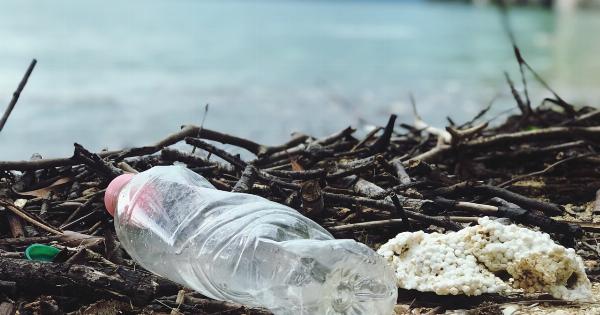There are so many products that we use in our daily lives, often without giving them a second thought. From cleaning supplies to personal care products, we trust that these items are safe for us to use.
However, there is one common item that may be silently harming our health: plastic.
The Dangers of Plastic
Plastic is everywhere, from food containers to water bottles and even in the fabrics we wear. While it has become an essential part of our modern lifestyle, there is growing evidence that plastic poses several risks to our health and the environment.
One of the main concerns with plastic is the presence of harmful chemicals, such as bisphenol A (BPA) and phthalates.
BPA is commonly found in plastic bottles and food containers, while phthalates are often used in cosmetics, fragrances, and soft plastics. These chemicals can leach out of the plastic and contaminate the products we use, leading to potential health problems.
Health Risks of Plastic
Several studies have linked the use of plastic to various health issues. BPA, for example, has been associated with hormone disruption, leading to reproductive problems, developmental issues in children, and an increased risk of certain types of cancer.
Phthalates, on the other hand, have been linked to hormonal imbalances, asthma, and even obesity.
Furthermore, plastic pollution in the environment has become a significant concern. Plastic waste often ends up in landfills and oceans, where it breaks down into smaller pieces called microplastics.
Marine life can mistake these microplastics for food and ingest them, leading to toxic buildup in their bodies. When we consume seafood, we also end up ingesting these microplastics, which can have adverse effects on our health.
The Importance of Reducing Plastic Use
Given the potential dangers associated with plastic, it is crucial to reduce our reliance on this material. We need to find alternative solutions that are safer for our health and the environment. Here are ten ways you can reduce your plastic use:.
1. Use Reusable Bags
Instead of relying on plastic bags for your groceries or shopping, opt for reusable bags made of canvas or other sustainable materials. Keep a few of these bags in your car or purse to avoid using plastic bags when you shop.
2. Carry a Reusable Water Bottle
Invest in a high-quality reusable water bottle and carry it with you wherever you go. This not only reduces your plastic waste but also helps you stay hydrated without relying on single-use plastic bottles.
3. Say No to Disposable Cutlery and Straws
When you order takeout or dine out, avoid using disposable cutlery and straws. Instead, carry your own reusable utensils and metal or bamboo straws.
Not only will this help reduce plastic waste, but it will also set a positive example for others to follow.
4. Choose Glass or Stainless Steel Containers
Instead of storing food in plastic containers, opt for glass or stainless steel containers. These materials are safer alternatives and do not leach harmful chemicals into your food.
5. Buy in Bulk
When possible, buy products in bulk and store them in your own reusable containers. This helps minimize the use of individually packaged items, reducing your overall plastic consumption.
6. Avoid Microbeads in Personal Care Products
Microbeads, tiny plastic particles commonly found in exfoliating scrubs and toothpaste, are harmful to the environment and can easily enter our bodies. Look for natural alternatives or products without microbeads.
7. Choose Natural Fibers
When purchasing clothing or fabrics, opt for natural fibers such as cotton, linen, or hemp instead of synthetic fabrics like polyester or nylon. Synthetic fibers shed microplastics when washed, contributing to plastic pollution in our waterways.
8. Use Bar Soap
Avoid plastic packaging by opting for bar soap instead of liquid soaps that come in plastic bottles. Look for natural and zero-waste options for a more sustainable choice.
9. Compostable or Biodegradable Alternatives
Look for compostable or biodegradable alternatives for products that you regularly use, such as trash bags, food packaging, and even disposable diapers. These options break down more easily and have a lower impact on the environment.
10. Spread Awareness
Educate your friends, family, and community about the dangers of plastic and the importance of reducing its use. The more people understand the risks, the more likely they are to adopt sustainable practices.
Conclusion
Plastic has become deeply ingrained in our lives, but its dangers cannot be ignored. From the potential health risks to the devastating impact on the environment, it is imperative that we take action to reduce our plastic consumption.
By making small changes in our daily habits and opting for safer alternatives, we can protect our health and contribute to a more sustainable future.






























